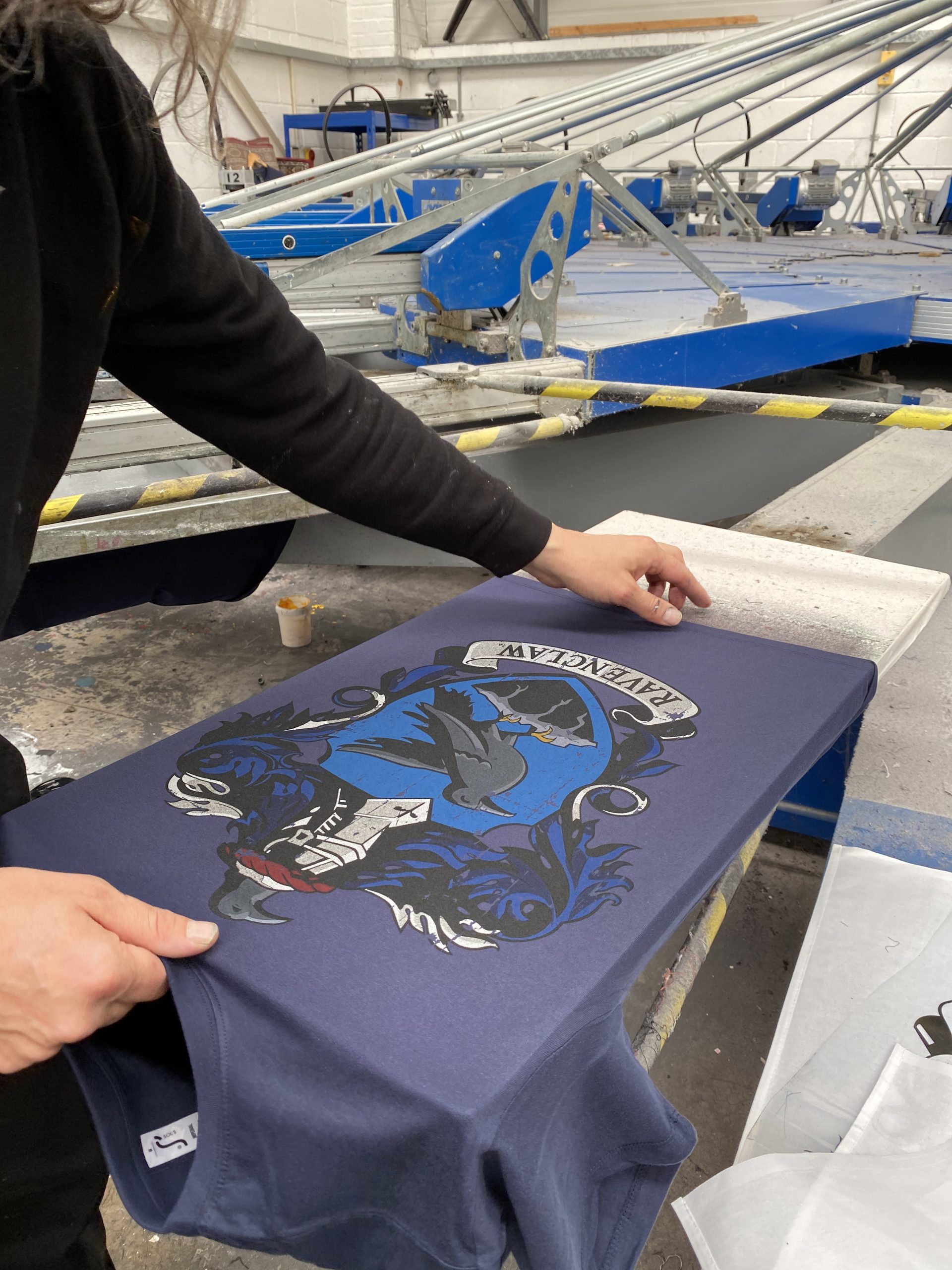The Essential Guide to Understanding Screen Printing and Its Versatile Uses
Screen printing has an abundant background that dates back to old times, advancing right into an advanced technique used throughout numerous markets today. This guide checks out the ins and outs of the screen printing procedure, detailing its applications in home, marketing, and fashion design - 10:9 Design LLC Company. Recognizing these basics can open up innovative potential for both industrial and artistic jobs. The adhering to sections will expose necessary tips and methods to improve one's screen printing undertakings
The Background of Screen Printing
Although screen printing has roots that trace back centuries, its development mirrors the artistic and technological advancements of different societies. Originating in ancient China, the technique was initially used for embellishing textiles and later spread to Japan, where it became essential to Ukiyo-e woodblock printing. The technique shifted to Europe in the 18th century, where it acquired popularity amongst craftsmens and business printers. The development of image solution in the 20th century reinvented screen printing, permitting more elaborate designs and better performance. Musicians like Andy Warhol additionally drove its appeal, utilizing the medium to create iconic jobs that mixed commercialism and fine art. By the late 20th century, screen printing had established itself as a functional strategy, utilized in fashion, advertising and marketing, and art. Today, it continues to evolve, incorporating digital technology and increasing its applications throughout various sectors.
The Screen Printing Process Explained
Screen printing transforms imaginative visions into substantial styles via a series of specific actions. Initially, a photo is produced and afterwards transferred onto a screen, usually made of great mesh material extended over a frame. A light-sensitive emulsion is used to the screen, which is exposed to light, setting in locations not covered by the picture. After cleaning out the unhardened emulsion, a stencil is created.
Next, the screen is put over the substratum, whether it be fabric, paper, or one more product. Ink is then pushed with the open locations of the pattern using a squeegee, transferring the layout onto the substratum below. This process can be duplicated for numerous shades, requiring separate screens for each and every hue. Lastly, the published item is cured utilizing warm to assure the ink sticks properly, leading to a long lasting, vivid layout ready for use.
Sorts Of Screen Printing Techniques

Furthermore, specialty methods, such as discharge screen printing, eliminate color from the material to produce softer prints, while aluminum you can try here foil screen printing uses metallic foil to accomplish a shiny surface (10:9 Design reviews). Each strategy uses unique qualities, satisfying different creative needs and manufacturing ranges, eventually broadening the possibilities within the screen printing domain name
Applications of Screen Printing in Numerous Industries

Furthermore, the signs and advertising and marketing markets utilize screen printing for producing captivating screens and banners. This approach permits bold shades and elaborate layouts that capture interest. In electronic devices, screen printing is utilized for using conductive inks to circuit boards, necessary for component links. Moreover, the home décor sector embraces screen printing to create distinctive styles on fabrics and wall art. Generally, screen printing functions as a crucial tool throughout varied areas, enhancing products with customized and visually attractive graphics.
Tips for Effective Screen Printing Projects
While undertaking a screen printing project, careful interest to detail can substantially boost the last end result. Choosing top notch materials is crucial; this consists of the screen, inks, and substratums. Making use of proper mesh counts can influence ink deposition and detail resolution. Preparation is just as crucial; extensive cleansing of screens and correct exposure times guarantee crisp prints.
Next off, accurate registration is important for multi-color prints. Utilizing placement tools can assist achieve accurate layering. Furthermore, screening prints on scrap products before production check out this site helps identify prospective problems without squandering sources.

Frequently Asked Questions
What Products Are Ideal for Screen Printing on Fabric?
Cotton and polyester blends are perfect for screen printing on fabric because of their resilience and ink absorption. Additionally, specialized textiles like silk or canvas can generate distinct structures and surfaces, enhancing the total design high quality.
Exactly how Do I Tidy and Maintain Screen Printing Tools?
To cleanse and maintain screen printing devices, one need to on a regular basis clean screens with appropriate solvents, examine squeegees for wear, lubricate moving components, and store all items in a completely dry, dust-free atmosphere to prolong their life-span.
What Are the Ecological Effects of Screen Printing?
Screen printing can have substantial environmental influences, including chemical waste from inks and solvents, water use throughout cleaning processes, and energy consumption. Lasting techniques and environment-friendly materials are essential for reducing these unfavorable results.
Can Screen Printing Be Done at Home Successfully?
Screen printing can be effectively done at home with the right materials and strategies. Hobbyists can develop quality prints, though success depends upon their skill level, devices, and understanding of the process included.
What Are the Expenses Linked With Beginning a Display Printing Service?

Starting a screen printing organization includes expenses for equipment, products, and workspace. Initial costs typically range from a couple of hundred to several thousand dollars, depending on the range, quality of machinery, and preferred manufacturing capacity.
Screen printing has an abundant history that dates back to ancient times, evolving right into an advanced method utilized across various industries today. An additional strategy, rotary screen printing, employs go to this site round screens, facilitating continual printing on material rolls, consequently boosting efficiency for large-scale productions. In addition, specialty methods, such as discharge screen printing, eliminate dye from the fabric to develop softer prints, while aluminum foil screen printing applies metallic foil to achieve a glossy coating. In the fashion sector, screen printing is extensively made use of to produce dynamic styles on clothing, allowing brands to showcase their unique designs. Cotton and polyester blends are suitable for screen printing on fabric due to their durability and ink absorption.